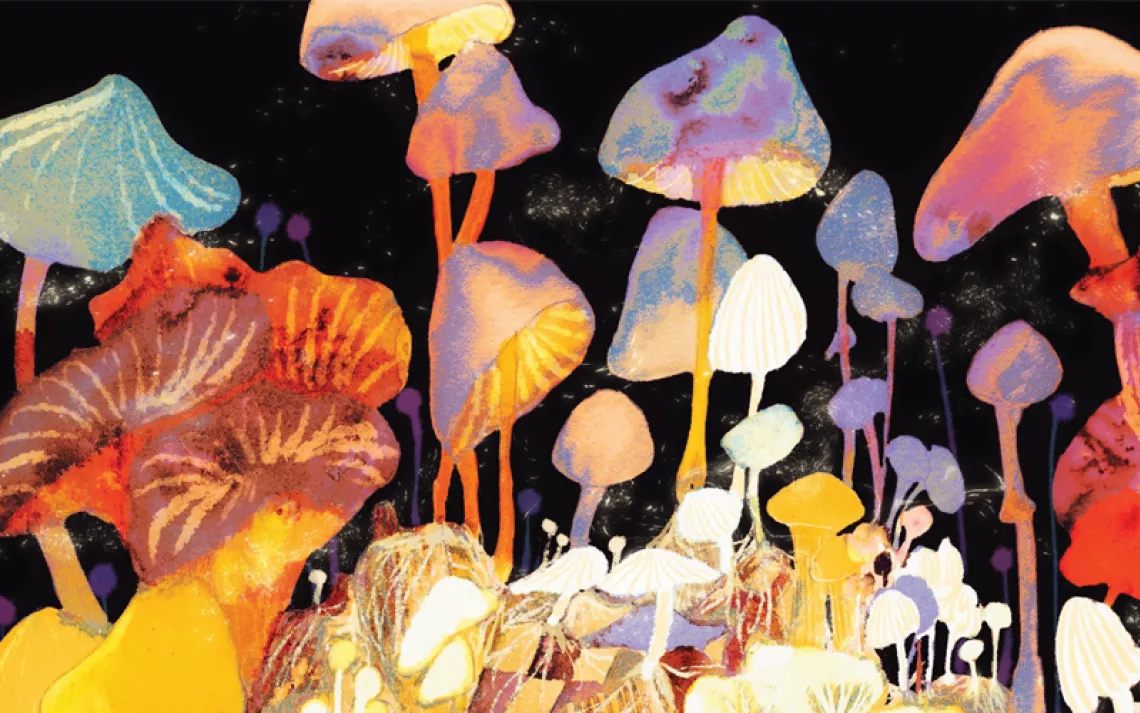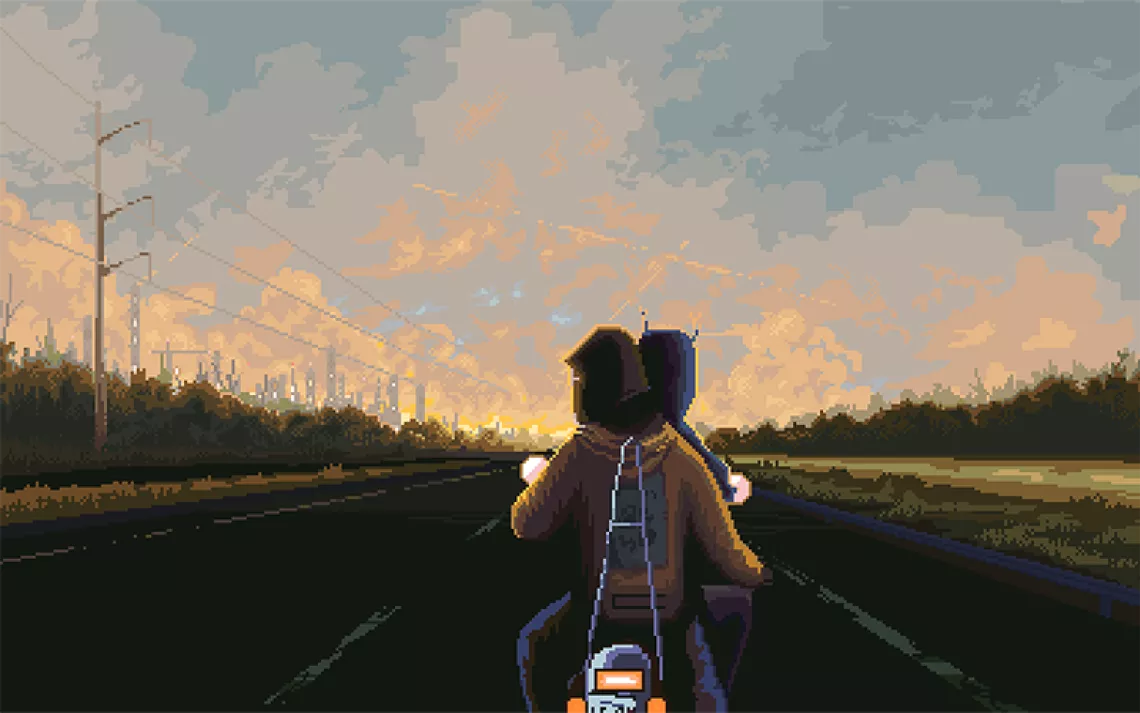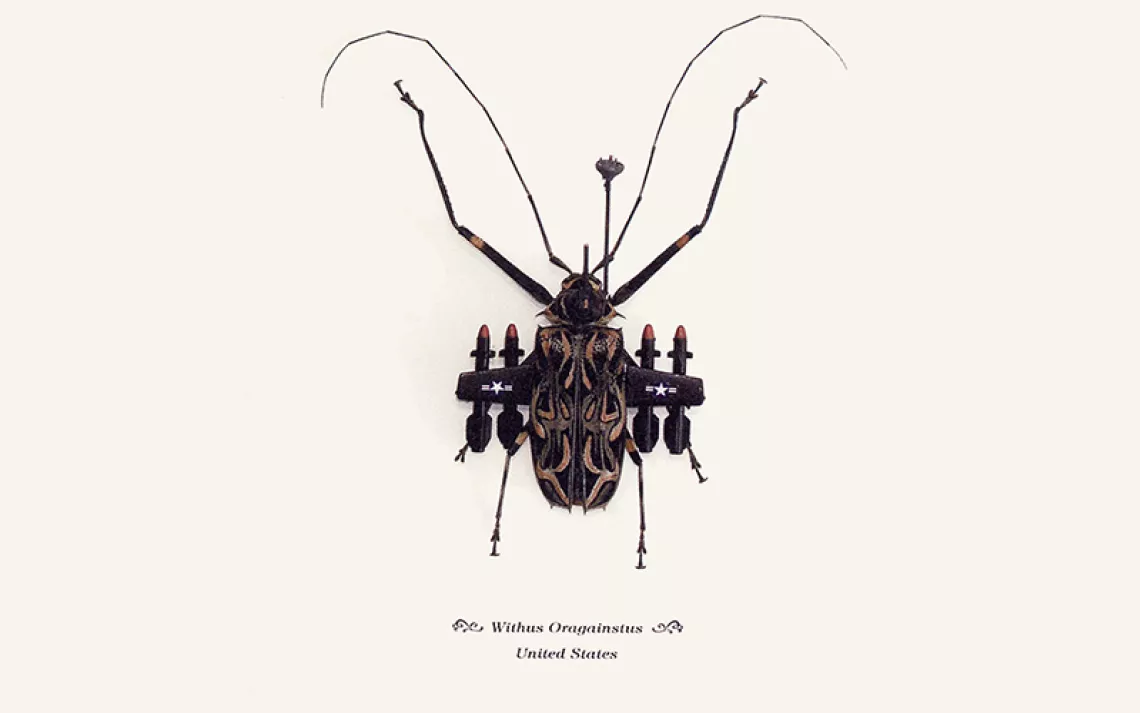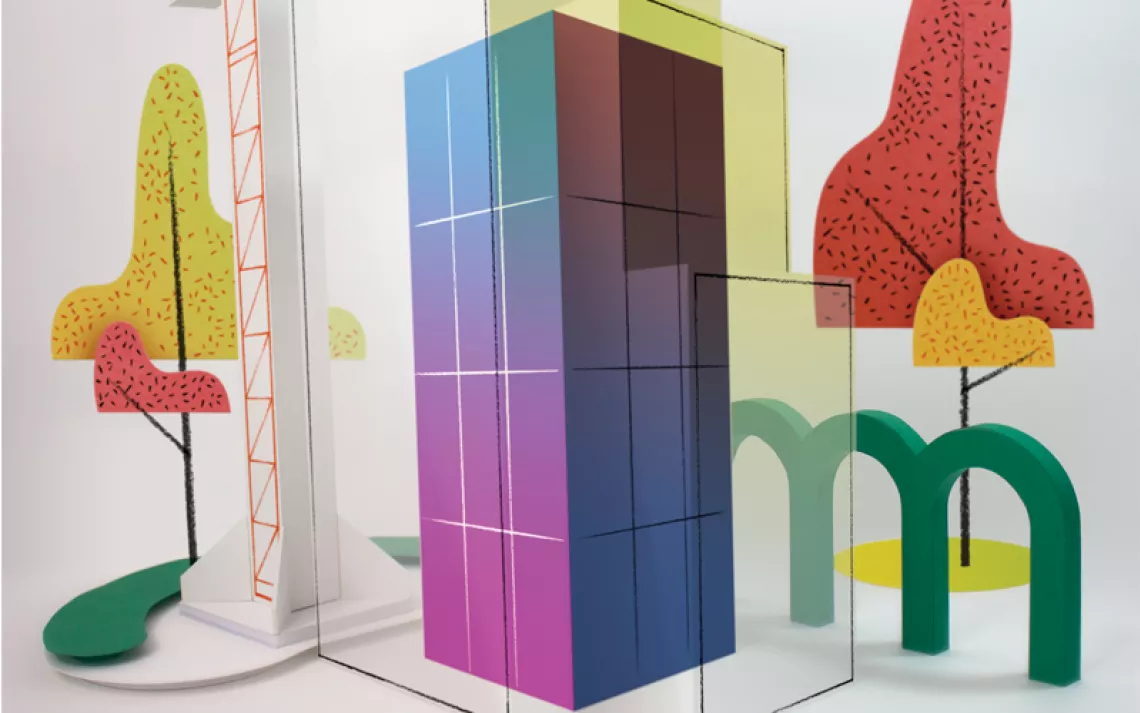Junkgirls’ Jenny Kompolt Practices the Art of Healing With Discarded Objects
How to see beauty in worn-out things and help others see it, too

Photos courtesy of Jenny Kompolt
As a child, Jenny Kompolt liked to visit a creek that ran behind her house. When things were bad at home, she would spend hours there exploring, climbing, listening to the water, and just smelling the earth. She collected things, too, like small rocks and rusty bits that she found in the creek bed, stashing her treasures in little boxes.
As an adult, Kompolt escaped memories of a difficult childhood by burying herself in work. She had a successful career, first at Netflix, then with eBay. Eventually she founded her own company, helping charities raise money through the online platform.
But she suffered from crippling anxiety and depression. “I had such low self-esteem, I couldn’t even look myself in the mirror,” she says. Then a trusted therapist asked her to try art therapy. “I told her I didn’t think I’d be any good at it, and she said, ‘I don’t care if you draw stick figures in the sand.’”
Kompolt, who wasn’t interested in drawing or painting, thought back to the creek of her childhood, where she had felt safe and happy, where she could always find what had been lost. She told her therapist that she wanted to work with found objects.
Despite her grueling work schedule, she started making time to visit junkyards and garage sales. She’d find trinkets that intrigued her—like a small metal airplane with a wing broken off—and turn them into art pieces that she talked about in therapy. Sometimes she smashed them as a way to work through her feelings, but a few ended up on the wall in her office. To her shock, people would see them and ask if they were for sale. Someone suggested showing the artwork at a nearby restaurant. “Things just started from there,” Kompolt says.
In 2009, Kompolt and Melissa James, Kompolt's business and life partner, left the corporate world behind to devote themselves to the art of repurposing discarded things. “I haven’t worn a watch since,” Kompolt says.
In 2014, they opened a store dedicated to that art, and to helping people see the beauty in salvaged materials. Junkgirls sits off of Main Street in the California Central Coast town of Cambria. It consists of an orderly indoor space and a ramshackle outdoor space filled with cast-off items like rusty bike wheels, golf clubs, wire spools, car parts, old-fashioned classroom chairs, outdated farm tools, and more, all piled in between lush, sprawling succulents.
Inside, customers can find an eclectic mix of found objects and artwork: functioning clocks constructed from broken ones, vases made out of bullet casings, a gumball machine filled with game pieces. There are buddhas and broken toys, doll parts and figurines, and a shelf or two of “Victory Girls”—angel trophies with inspirational messages like, “I was born to do this. I am not afraid.”

The store also sells soulful greeting cards with photographs of repurposed art and cutlery refashioned into necklaces and keyrings, all metal stamped by James with personal affirmations. And on the walls? The leg of a piano stool, a cast iron heating grate, antique kitchenware, wooden prints, and lamps made from recycled parts.
One thing customers won’t find in the store or out back is a lot of plastic, which Kompolt dislikes. It’s too much a part of a disposable culture that is trashing the environment, and treating people, too, as disposable.
As a child, Kompolt looked for treasure in the creek behind her house. Now, she and James have provided a space for others to come find their own bits of treasure, to take home as mementos or make into art. It’s a safe and happy place, comfortably cluttered with old things that might be damaged but still have value.
Kompolt writes up cards for each art piece that she creates—what inspired her to make it, where she found the recycled parts. But when people wander into Junkgirls, sometimes they find their own stories, which is just how Kompolt wants it. She has seen customers become emotional over something as simple as an orange marble. “It could be the colorway, it could be the material, it could be the phrase or word or metaphor that I’ve used with it,” she says. “It brings up a memory.”

Junkgirls Melissa James and Jenny Kompolt
Kompolt has continued to showcase her art in other, bigger venues. She was commissioned by Sports and the Arts, an agency that curates art for sports venues, to create a number of pieces for Levi’s Stadium in Santa Clara, California, and Lambeau Field in Greenbay, Wisconsin. For one of her projects, she rescued defunct NFL footballs, cut them into pieces, and stitched them together to create a framed, life-size silhouette of a football player. She also made a four-foot square image of a 49ers helmet out of her own collection of worn-out 501 jeans. To celebrate legendary football coach Vince Lombardi, who famously ran on “Lombardi Time” (15 minutes ahead of schedule), she arranged hundreds of clock faces of all different sizes in a six-foot square frame.
Kompolt still combs through junkyards and garage sales as well as estate sales. People also come to her when they want their vintage items to go to a good home. She is not a hoarder, though. She used to have a warehouse full of old things, but she cleaned it out. “It’s about choosing the stuff I really want to work with,” she says, “and letting go of the rest.”
Last August, Kompolt and James opened a gallery next to Junkgirls that features Kompolt’s larger artwork and lighting. “It’s only 28 steps from our store,” Kompolt says. The gallery will also provide space for classes, which the two hope to be offering by early 2018. They want to provide others not only with practical skills for working with salvaged materials, but also an avenue for the kind of personal transformation that Kompolt experienced with art therapy. “We try to let people see old things in a new and a different way,” she says. And that just might help them to see themselves in a different way.
“There’s something in this that really works.”

You can see more of Kompolt’s art on Instagram and find Junkgirls on Facebook.
 The Magazine of The Sierra Club
The Magazine of The Sierra Club



